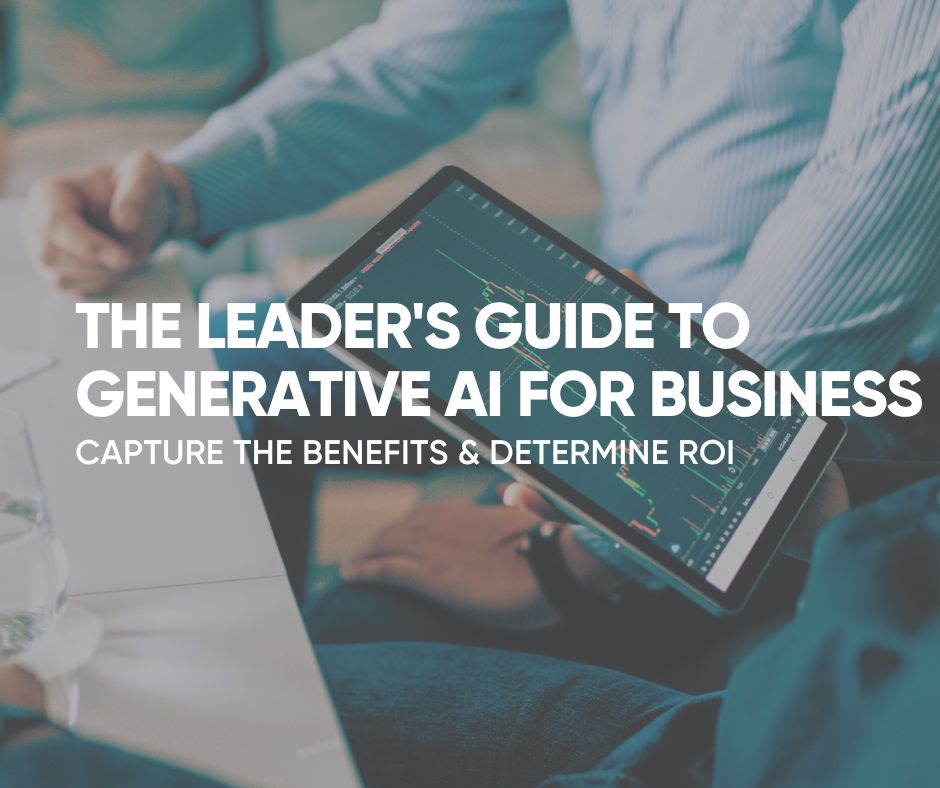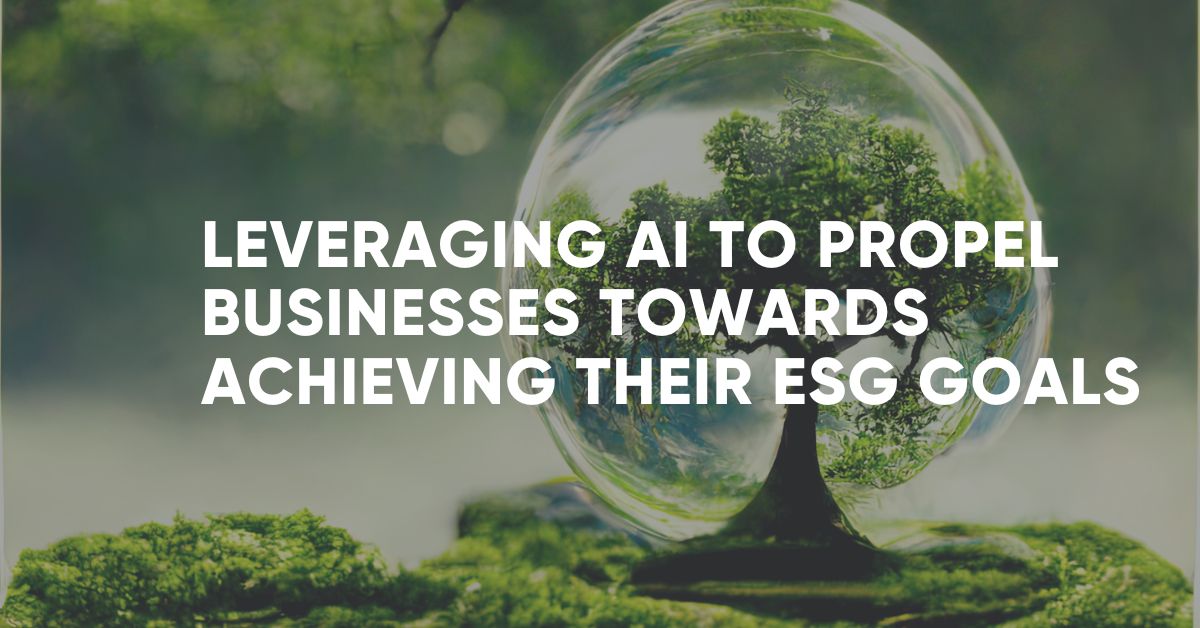Environmental, Social, and Governance (ESG) considerations are taking an increasingly prominent role in business strategy. Companies are recognizing the importance of aligning their operations with sustainable practices to ensure long-term success, mitigate risks, and contribute positively to society and the environment. To achieve these goals more effectively, businesses are turning to Artificial Intelligence (AI) as a powerful tool that can drive innovation, optimize processes, and enhance decision-making.
Let’s delve into how AI can play a pivotal role in helping businesses meet, and possibly exceed, their ESG objectives.

Enhancing Environmental Sustainability
AI-powered technologies are revolutionizing the way businesses manage their environmental impact. One prominent example is predictive analytics, which leverages AI algorithms to analyze vast amounts of data and forecast trends. This technology enables companies to optimize their energy consumption, waste management, and resource allocation, resulting in reduced carbon emissions and resource wastage.
For instance, AI-driven energy management systems can continuously monitor and adjust energy usage in real-time, leading to significant energy savings. Additionally, AI can aid in supply chain optimization, identifying opportunities for efficiency improvements that minimize environmental impact throughout the product lifecycle. One manufacturing firm reduced wasted materials by over 30% while also increasing the quality of its products.
Fostering Social Responsibility
AI tools have the potential to bolster a company’s social initiatives by enabling more informed decision-making. Social responsibility isn’t just good for business, it is also suitable for business as more consumers consider CSR initiatives when making purchase decisions. Through sentiment analysis and social listening, companies can gain deeper insights into public opinion, customer feedback, and emerging social issues. This information is invaluable in tailoring products, services, and communication strategies that resonate positively with customers and stakeholders.
Furthermore, AI-driven diversity and inclusion efforts can help businesses build more equitable workplaces. Machine learning algorithms can identify bias in hiring practices and recommend changes to promote diversity, and study after study has shown that diverse workplaces produce better results. Additionally, AI-enabled employee feedback systems can create a culture of transparency and inclusivity, fostering a sense of belonging among the workforce.
Strengthening Governance and Ethics
Governance and ethical considerations play a critical role in maintaining a company’s reputation and ensuring long-term viability. AI-driven compliance monitoring tools can analyze vast amounts of data to identify potential risks and breaches, aiding companies in maintaining regulatory compliance and preventing fraudulent activities.
AI can also enhance transparency in reporting by automating data collection, analysis, and disclosure processes. This reduces the likelihood of errors and improves the accuracy and reliability of ESG reports, thereby bolstering investor confidence.

Driving Innovation and Sustainable Product Development
AI-driven innovation can revolutionize product design and development by incorporating sustainability as a core principle. Through AI-powered simulations and design optimization, businesses can create products with reduced environmental impact and longer lifecycles. AI can assist in identifying materials, processes, and design elements that align with ESG objectives.
AI’s ability to process and analyze massive datasets can accelerate research and development efforts for sustainable technologies. Whether it’s renewable energy solutions, circular economy models, or advanced recycling methods, AI can expedite the discovery and implementation of innovative solutions.
The integration of AI technologies presents an exciting opportunity for businesses to align their operations with ESG goals. From enhancing environmental sustainability and fostering social responsibility to strengthening governance and driving innovation, AI can drive transformative change across various dimensions of a company’s operations. By leveraging AI to analyze data, optimize processes, and make informed decisions, businesses can not only achieve their ESG objectives but also position themselves as leaders in responsible and sustainable practices. As AI continues to evolve, its role in shaping a more sustainable and ethical business landscape will continue to grow.

GENERATIVE AI EBOOK
The Leader’s Guide to Generative AI in Business
In “The Leader’s Guide” you will learn about the basics of generative AI, including how it works, the different types of generative AI models, and the benefits for enterprise organizations.
You will also learn about the challenges and opportunities associated with generative AI, and how you can elevate your business with this powerful new technology.

